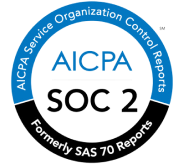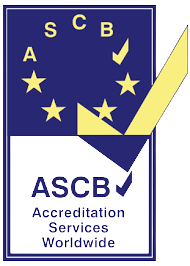Table of Content
Introduction
As organisations strive for excellence and success, attracting and managing top talent becomes a critical aspect of their operations. HR professionals help in identifying, recruiting, developing, and retaining the best employees. However, this task is not without its challenges. In this article, we delve into the six challenges HRs face in managing top talent and provide actionable solutions to tackle them effectively.
In fact, by reading the blog further, you will understand how modern HR software in India helps to tackle these challenges effortlessly. If you’re an HR, you will know better how to implement a smart and collaborative tool like uKnowva and get over the hiring woes on time.
Want to skip the content?

Understanding the Importance of Top Talent Management
Before delving into the challenges, let's first comprehend the significance of top talent management. Top talent refers to employees who consistently deliver exceptional results, possess unique skills, and demonstrate leadership potential. They are the driving force behind an organisation's growth and success, making effective management of this talent pool crucial for long-term sustainability.
The 6 Challenges HRs Face in Managing the Top Talent
-
Attracting the Right Talent Amidst Fierce Competition
Finding the right talent is quite challenging when competing with other organisations for individuals with exceptional skills and experience. The job market has become fiercely competitive, and HR professionals must employ innovative recruitment strategies to stand out from the crowd.
One effective approach is to leverage Employer Branding to create a positive reputation and attract top talent organically. Utilising a social intranet and highlighting employee success stories can significantly enhance an organisation's appeal to prospective candidates.
-
Identifying and Assessing High-Potential Employees
Identifying high-potential employees is crucial for an organisation's succession planning and long-term growth. However, accurately assessing an individual's potential is a challenging task that requires a combination of data-driven analysis and human intuition.
To address this challenge, HRs can implement talent assessment programs that involve performance evaluations, skills assessments, and leadership potential indicators. Combining objective metrics with behavioural assessments provides a holistic view of an employee's capabilities and potential.
-
Nurturing and Developing Top Talent
Once top talent is identified, it is essential to nurture their skills and potential continually. HR professionals must design comprehensive talent development programs that cater to individual needs and aspirations.
Creating personalised development plans, providing access to workshops and training, and offering mentorship opportunities are effective ways to foster the growth of top talent.
Furthermore, regular performance feedback and recognition boost motivation and engagement among these employees.
-
Addressing Employee Burnout and Turnover
Top talent often takes on significant responsibilities, leading to an increased risk of burnout. Additionally, if employees feel undervalued or dissatisfied, they may consider exploring opportunities elsewhere.
To mitigate burnout and reduce turnover rates, HRs must proactively address employee well-being. Implementing work-life balance initiatives, encouraging open communication, and recognising achievements can significantly enhance employee satisfaction and retention.
-
Managing Intergenerational Workforce Dynamics
Modern workplaces comprise employees from various generations, each with unique values, work styles, and communication preferences. HR professionals face the challenge of creating a cohesive and collaborative work environment with the help of HRMS software India that embraces diversity while minimising potential conflicts.
To overcome this challenge, HRs can facilitate intergenerational workshops and team-building activities to foster understanding and empathy among employees. Encouraging cross-generational mentorship programs also promotes knowledge exchange and strengthens team dynamics.
-
Keeping Abreast of Evolving HR Technologies
In the digital age, HR technologies continue to evolve rapidly. From AI-driven recruitment tools to advanced employee performance analytics, HR professionals must adapt to stay ahead in the game.
To address this challenge, organisations should invest in continuous learning and development for HR personnel. Encouraging them to attend conferences, webinars, and workshops on HR technology trends enables them to make informed decisions and implement cutting-edge solutions.
Conclusion
Effectively managing top talent is essential for an organisation's success, but it comes with its share of challenges. HR professionals must navigate through fierce competition, identify high-potential employees, nurture talent, address burnout, manage generational differences, and keep up with evolving HR technologies. By implementing the above-listed strategies, HRs overcome these challenges and create a thriving work environment where top talent can flourish.
FAQs (Frequently Asked Questions)
Q: How can HR professionals attract top talent effectively?
A: HR professionals can attract top talent by leveraging employer branding, showcasing a positive work culture, and highlighting employee success stories.
Q: What strategies can HRs use to identify high-potential employees?
A: HRs can identify high-potential employees through performance evaluations, skills assessments, and behavioural indicators combined with data-driven analysis.
Q: How can HRs prevent employee burnout among top talent?
A: HRs can prevent employee burnout by implementing work-life balance initiatives, encouraging open communication, and providing recognition for achievements.
Q: How can HRs manage generational differences in the workforce?
A: HRs can manage generational differences by organising intergenerational workshops, fostering cross-generational mentorship, and promoting diversity and inclusion.
Q: What are the key aspects of nurturing and developing top talent?
A: The key aspects of nurturing and developing top talent include creating personalised development plans, offering access to training and mentorship, and providing regular feedback.
Q: How can HRs stay updated on the latest HR technologies?
A: HRs can stay updated on the latest HR technologies by investing in continuous learning opportunities such as attending conferences, webinars, and workshops.












